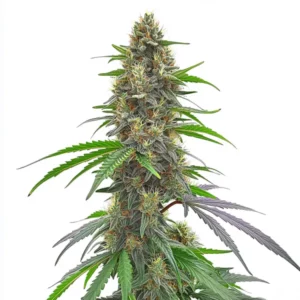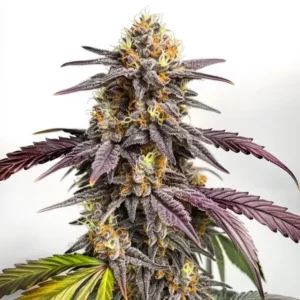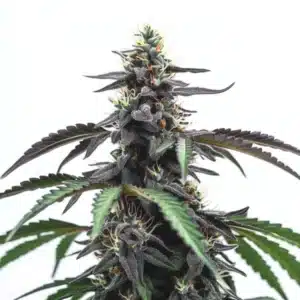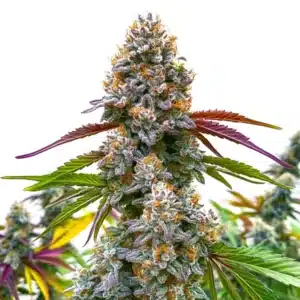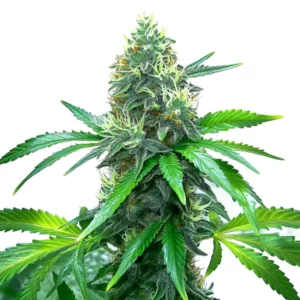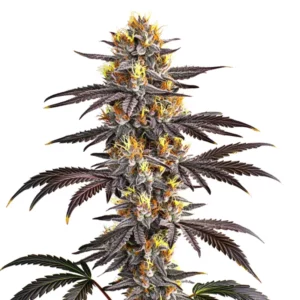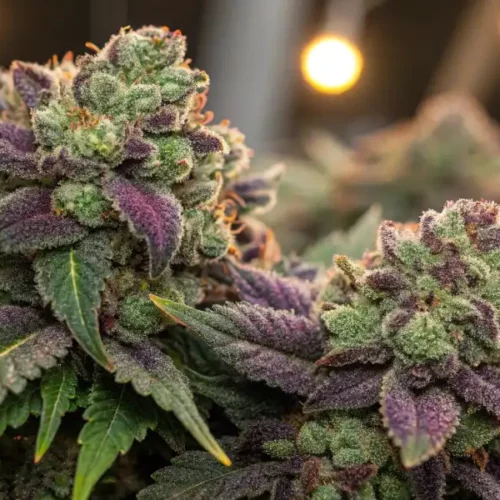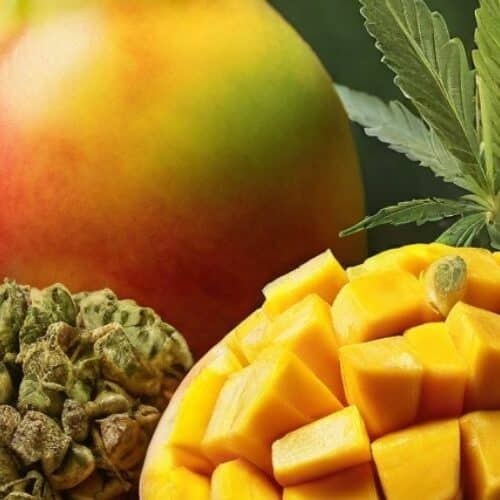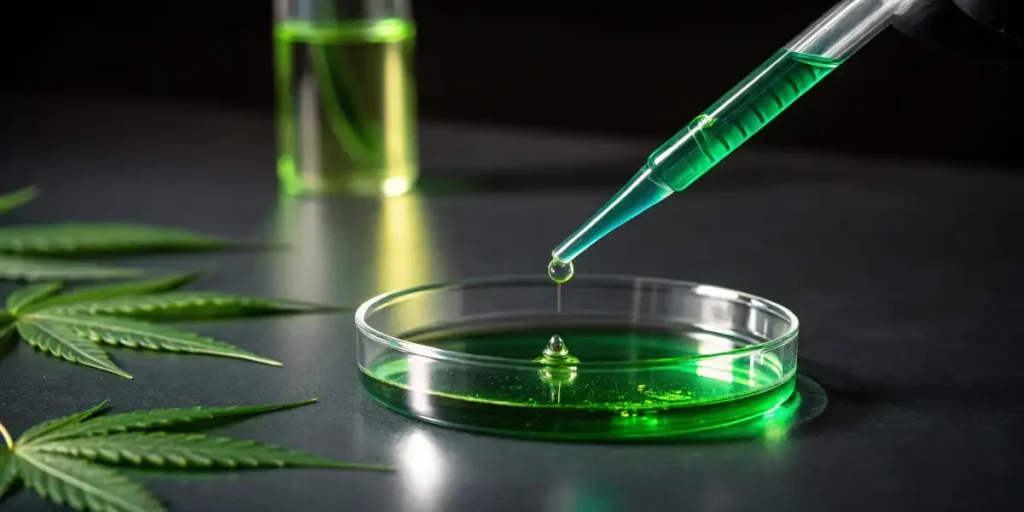
Cannabinoid Synthesis Pathway: What You Need to Know
Whether you are new to cannabis cultivation or an experienced grower, a solid grasp of the cannabinoid synthesis pathway is vital. This pathway is responsible for the production of cannabinoids, the chemical compounds that give cannabis its medical and recreational properties.
These substances are synthesized in the trichomes of the cannabis plant. Trichomes are tiny hair-like appendages that appear on the plant’s buds and leaves. They are where the magic happens, turning simple precursor molecules into a dazzling array of cannabinoids.
The process in cannabis works in a straightforward manner, though it may seem complex at first glance. In essence, the process involves the transformation of geranyl pyrophosphate and olivetolic acid, two precursor molecules, into cannabinoids.
The Function
It’s essential to remember that the process plays a crucial part in determining the quality and effects of your cannabis. Different strains of cannabis produce different levels of cannabinoids, leading to varying experiences.
For instance, the OG Kush strain from Blimburn Seeds is known for its high THC content. This is due to the plant’s particular process, which produces a high level of this psychoactive substance.
In fact, the importance of this process in cannabis cultivation cannot be overstated. Not only does it influence the concentration of cannabinoids but also the ratio in which they are produced. This is what determines whether a plant will have more THC, CBD, or any other cannabinoid, ultimately shaping its therapeutic and recreational potential.
Furthermore, through selective breeding and genetic manipulation, growers can influence the cannabinoid synthesis pathway to produce desired traits. This has given rise to a plethora of strains each with unique cannabinoid profiles tailored to meet specific needs or preferences of consumers.
Promos & Deals
Genetics
Genetics plays a significant part in the cannabinoid synthesis pathway. Different cannabis strains have different genetic makeups, which can significantly impact the types and amounts of cannabinoids they produce.
For example, the Critical Daddy Purple strain from Blimburn Seeds has a unique genetic profile that allows it to produce high levels of both THC and CBD. This makes it an excellent choice for growers seeking a balanced cannabinoid profile.
Comprehending the genetics is integral for advanced cannabis cultivation. By breeding plants with desirable genetic traits, growers can cultivate strains that produce specific cannabinoids in high concentrations. This gives them the ability to cater to a diverse range of consumer needs, from recreational use to specific medicinal applications.
Research into the genetics also opens up the potential for creating new, tailor-made strains. This could enable the production of cannabis plants that yield specific cannabinoids in quantities that were previously thought impossible. The possibilities for new medicinal and recreational cannabis products are virtually endless.
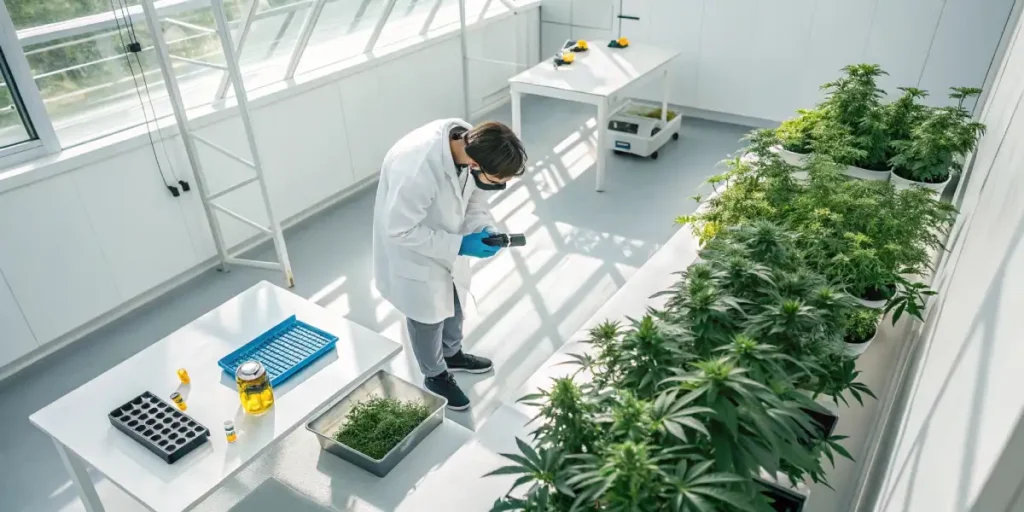
Comprehending the Cannabinoid Synthesis Pathway
To truly appreciate the importance of cannabinoid production, let’s take a closer look at how it works. The process begins with the combination of geranyl pyrophosphate and olivetolic acid to form cannabigerolic acid (CBGA), the precursor to all other cannabinoids.
From there, specific enzymes convert CBGA into the acidic forms of THC, CBD, and CBC. These acidic forms are then decarboxylated (heated) to form the cannabinoids we all know and love.
Comprehending cannabinoid production in cannabis is fundamental for maximizing the potential benefits of this plant. By manipulating the process, we can increase or decrease the production of specific cannabinoids. This could lead to the development of cannabis strains with customized cannabinoid profiles, suited to treat specific ailments or provide desired recreational effects.
Moreover, a thorough knowledge of cannabinoid production allows growers to make informed decisions about plant care. Knowing how environmental factors such as light, temperature, and nutrients interact with the plant’s genetics to influence cannabinoid production can help optimize cultivation practices and yield better results.
How Cannabis Strains Affect the Cannabinoid Synthesis Pathway
Every cannabis strain has a unique genetic makeup that influences its cannabinoid synthesis pathway. For instance, the Gorilla Glue #4 strain from Blimburn Seeds is genetically predisposed to produce a high THC content, resulting in potent psychoactive effects.
On the other hand, some strains are bred to have a high CBD content and low THC levels, offering medicinal benefits without intense psychoactive effects. Comprehending how different strains influence cannabinoid production can help growers choose the right seeds for their needs.
Furthering our knowledge of how different cannabis strains affect cannabinoid production can lead to more effective cultivation techniques. For example, if a grower knows that a specific strain produces high levels of a particular cannabinoid, they can focus their efforts on optimizing the growing conditions that favor its production. This can ultimately lead to higher yields and more potent cannabis.
Additionally, gaining insight into the impact of different cannabis strains on cannabinoid production could help in the development of new therapeutic treatments. By breeding strains to produce high levels of specific cannabinoids, researchers could create new cannabis-based medicines tailored to treat specific conditions. This highlights the immense potential of cannabis in the realm of medical research.
Among the factors that can influence cannabinoid production is the plant’s environment. Factors such as light, temperature, and nutrient availability can all impact the synthesis of cannabinoids. Therefore, it’s crucial for growers to provide their plants with optimal growing conditions to ensure the best cannabinoid production.
Beyond just growing conditions, cannabinoid production can also be influenced by stressors such as pests, disease, and physical damage. These stressors can trigger the plant’s defense mechanisms, which may result in changes to cannabinoid production and the resulting cannabinoid profile.
Importance of the Cannabinoid Synthesis Pathway in Medical Research
The cannabinoid synthesis pathway is not only important for cannabis growers but also plays a significant part in medical research. Scientists are studying cannabinoids for their potential therapeutic benefits in treating a variety of conditions, from chronic pain to epilepsy.
The ability to manipulate could open up new possibilities for the development of cannabinoid-based therapies. With a better comprehension of how this works, researchers could potentially create cannabis strains tailored to treat specific medical conditions.
Indeed, in medical research is a burgeoning field. With ongoing advancements in genetic engineering and biotechnology, scientists are now able to manipulate more precisely. This could lead to the development of new, more effective treatments for a variety of conditions.
For instance, researchers could potentially alter to produce cannabinoids that are not naturally produced in significant quantities by the cannabis plant. These ‘minor’ cannabinoids, such as CBG or THCV, are showing promise in preliminary studies for their potential therapeutic benefits.
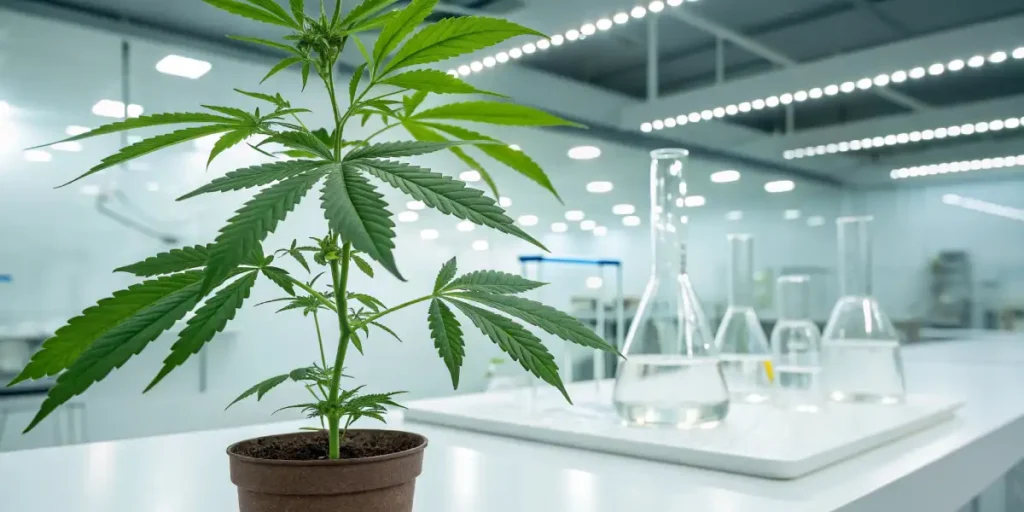
FAQs Section
Why is knowledge of the cannabinoid synthesis pathway important for cannabis growers?
Comprehending the cannabinoid synthesis pathway is crucial for cannabis growers because it helps them predict the potential cannabinoid content of their crops. By choosing seeds with the right genetics, growers can influence the types and amounts of cannabinoids in their plants.
Moreover, knowing how environmental factors affect the pathway can help growers optimize their cultivation techniques to enhance cannabinoid production. This can lead to higher yields and better quality cannabis.
Grasping this process also enables growers to breed plants that produce specific cannabinoids. For example, if a grower wants to produce a strain high in CBD, comprehending the process can help them select parent plants that have the genetic potential to produce high levels of CBD.
Knowledge of this process also empowers growers to make informed decisions about their cultivation practices. For instance, certain environmental factors can influence the process and alter the cannabinoid profile. By controlling these factors, growers can steer the production of cannabinoids in a desired direction.
How does the cannabinoid synthesis pathway differ between cannabis strains?
The process can vary between cannabis strains due to genetic differences. Some strains are genetically predisposed to produce high levels of certain cannabinoids, while others may produce a more balanced cannabinoid profile.
This genetic variability is one of the reasons why different strains of cannabis can have such diverse effects. It’s also why growers should carefully consider the genetics of the seeds they choose.
Indeed, the genetics of the cannabinoid synthesis pathway can greatly affect the final product. For instance, some strains may have a genetic predisposition to produce more THC, the primary psychoactive compound in cannabis. Others may produce more CBD, a non-psychoactive compound known for its potential therapeutic benefits.
This genetic variability also accounts for the unique effects of different cannabis strains. Some strains may induce relaxation and calm, while others may stimulate creativity and energy. This is largely due to the different types and ratios of cannabinoids that each strain produces.
Can you alter the cannabinoid synthesis pathway?
While you can’t directly alter the genetic makeup of your cannabis plants, you can influence the cannabinoid synthesis pathway through cultivation techniques. Factors such as light, temperature, and nutrients can all impact how cannabinoids are synthesized.
For instance, it’s been observed that exposing cannabis plants to ultraviolet light can increase THC production. Similarly, providing your plants with the right nutrients can help maximize cannabinoid production.
Apart from environmental factors, growers can also influence cannabinoid production through selective breeding. By crossbreeding strains with desirable traits, they can create new strains with unique cannabinoid profiles. This process, while complex, allows for the development of strains tailored to specific needs or preferences.
Furthermore, advancements in genetic engineering may soon provide us with more direct ways to alter cannabinoid production. Scientists are already exploring ways to manipulate the genes responsible for cannabinoid production, opening up exciting possibilities for the future of cannabis cultivation.
How does the cannabinoid synthesis pathway relate to the medical use of cannabis?
The process is central to the medical use of cannabis. Different cannabinoids have different therapeutic effects, so knowing this process can help medical researchers develop more effective cannabinoid-based treatments.
For example, THC is known for its psychoactive effects and is often used for pain relief, while CBD is non-psychoactive and is used to treat conditions like epilepsy and anxiety. By manipulating this process, researchers could potentially create strains that produce higher levels of specific cannabinoids.
This process is also a key player in the development of new cannabis strains with therapeutic potential. By comprehending how it functions, researchers can breed strains that produce high levels of medicinal compounds like CBD or CBG. This could lead to the creation of more effective treatments for a range of conditions, from anxiety to chronic pain.
Moreover, this process could also be harnessed to produce cannabinoids that are not naturally abundant in the plant. These minor cannabinoids, such as CBG or THCV, have shown promise in preliminary studies, indicating they could have unique therapeutic benefits that are yet to be fully explored.
Where can I find cannabis seeds with a specific cannabinoid synthesis pathway?
You can find a wide variety of cannabis seeds with different cannabinoid synthesis pathways at Blimburn Seeds. They offer a range of seeds, from high THC strains like OG Kush and Gorilla Glue #4 to balanced strains like Critical Daddy Purple.
By choosing the right seeds, you can influence the cannabinoid content of your cannabis plants and grow a crop that suits your specific needs, whether that’s medicinal use, recreational use, or a bit of both.
Remember, the cannabinoid production in cannabis can be influenced by both genetics and environmental factors. By selecting seeds with the right genetic potential and providing them with optimal growing conditions, you can influence the cannabinoid profile of your plants.
Finally, it’s important to note that while genetics play a key part in determining cannabinoid production, the plant’s environment can also influence the types and amounts of cannabinoids produced. Therefore, aside from choosing the right seeds, growers must also provide optimal growing conditions to ensure the best possible cannabinoid production.

